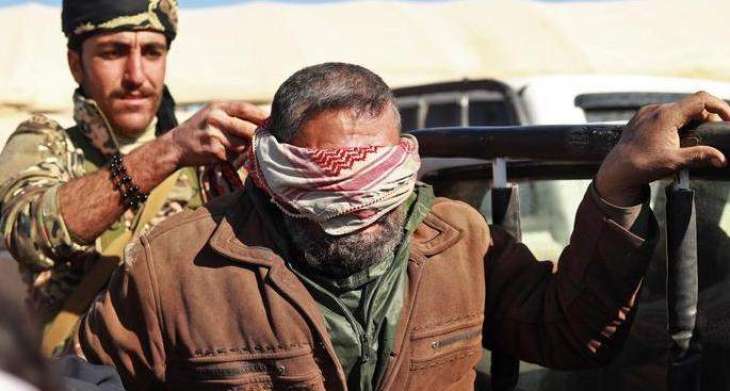Revoking citizenship of foreign terrorist fighters (FTFs) is a breach of international law, as well as of a state's obligations to neighboring countries and to its own citizens, Fionnuala Ni Aolain, the UN special rapporteur on the promotion and protection of human rights and fundamental freedoms while countering terrorism, told Sputnik in an interview
GENOA (Pakistan Point News / Sputnik - 21st November, 2019) Revoking citizenship of foreign terrorist fighters (FTFs) is a breach of international law, as well as of a state's obligations to neighboring countries and to its own citizens, Fionnuala Ni Aolain, the UN special rapporteur on the promotion and protection of human rights and fundamental freedoms while countering terrorism, told Sputnik in an interview.
In early November, Turkey enhanced efforts to send foreign members of the Islamic State terrorist group (IS, banned in Russia) back to their countries of origin, mostly European ones. Interior Minister Suleyman Soylu stressed that revoking citizenship of such ex-terrorists out of reluctance to take them back was unacceptable and irresponsible. According to the minister, there are some 1,200 FTFs held in Turkish prisons.
"From the European perspective, I think there is a huge problem with a European unwillingness to take back their citizens for two reasons. One is just the obligation of solidarity with other states. So every state has an obligation vis-a-vis its own nationals, including those who commit crimes and those who don't, and it is I think a transgression of the obligation of solidarity when states say 'no, our citizens are too problematic for us, we're just going to let these states deal with them'," Ni Aolain said.
According to the rapporteur, countries where FTFs stay often lack legal and practical capacities to deal with them.
"They are under-resourced in legal terms, they may not have the capacities to imprison them appropriately, they may not even have the capacity to do [so] in cases where de-radicalization is needed, they don't have the resources to do that. So, the first thing is that it's a breach of the obligations that states owe to each other to behave as good neighbors or good partners in international law," she said.
Article 15 of the Universal Declaration of Human Rights states that everyone has the right to a nationality and no one shall be arbitrarily deprived of their nationality. The UN Convention on the Reduction of Statelessness of 1961, ratified by 73 countries, restricts the use of citizenship deprivation powers to dual-nationals, while the Convention relating to the Status of Stateless Persons of aims to protect stateless individuals.
The second challenge, according to the UN rapporteur, is the obligations of the state toward its own citizens.
"Those include making a determination if a person has committed a crime or not ... Stripping of citizenship � we have a clear international prohibition on making a person stateless. Many of these states are parties to the Treaty on Statelessness. So, is it a breach of international law? Yes, it's a breach of international law if you make somebody stateless, of course it is," Ni Aolain said.
She noted that she was aware of very few cases of statelessness, though there were certain high-profile ones.
A study on the return of foreign fighters to EU soil by the European Parliamentary Research Service of May 2018 notes that the number of cases of FTFs' citizenship deprivation has begun to emerge since mid-2017, though the statistical data on the issue is still scarce.
Belgium, Denmark, and France can deprive a person of citizenship only on the basis of a criminal conviction preceded by an investigation and successful prosecution. However, the Netherlands and the United Kingdom do not impose such conditions.
Earlier this year, the UK government's insistence on stripping IS recruit Shamima Begum of her citizenship became widely publicized. Begum left the UK when she was 15 to join the IS in Syria. She was discovered by a journalist in a Syrian al Hawl camp in February 2019, pregnant and willing to return to the UK. However then-Home Secretary Sajid Javid said an order had been issued to revoke Begum's citizenship. She did, however, qualify for the Legal Aid Agency's help to fight the UK government's decision.
The issue concerns a significant number of people. There are more than 20,000 foreign terrorist fighters still alive in Syria and Iraq, coordinator of the UN Analytical Support and Sanctions Monitoring Team concerning IS, Al-Qaida (both banned in Russia) and Taliban, Edmund Fitton-Brown, told Sputnik in an interview earlier in November.




